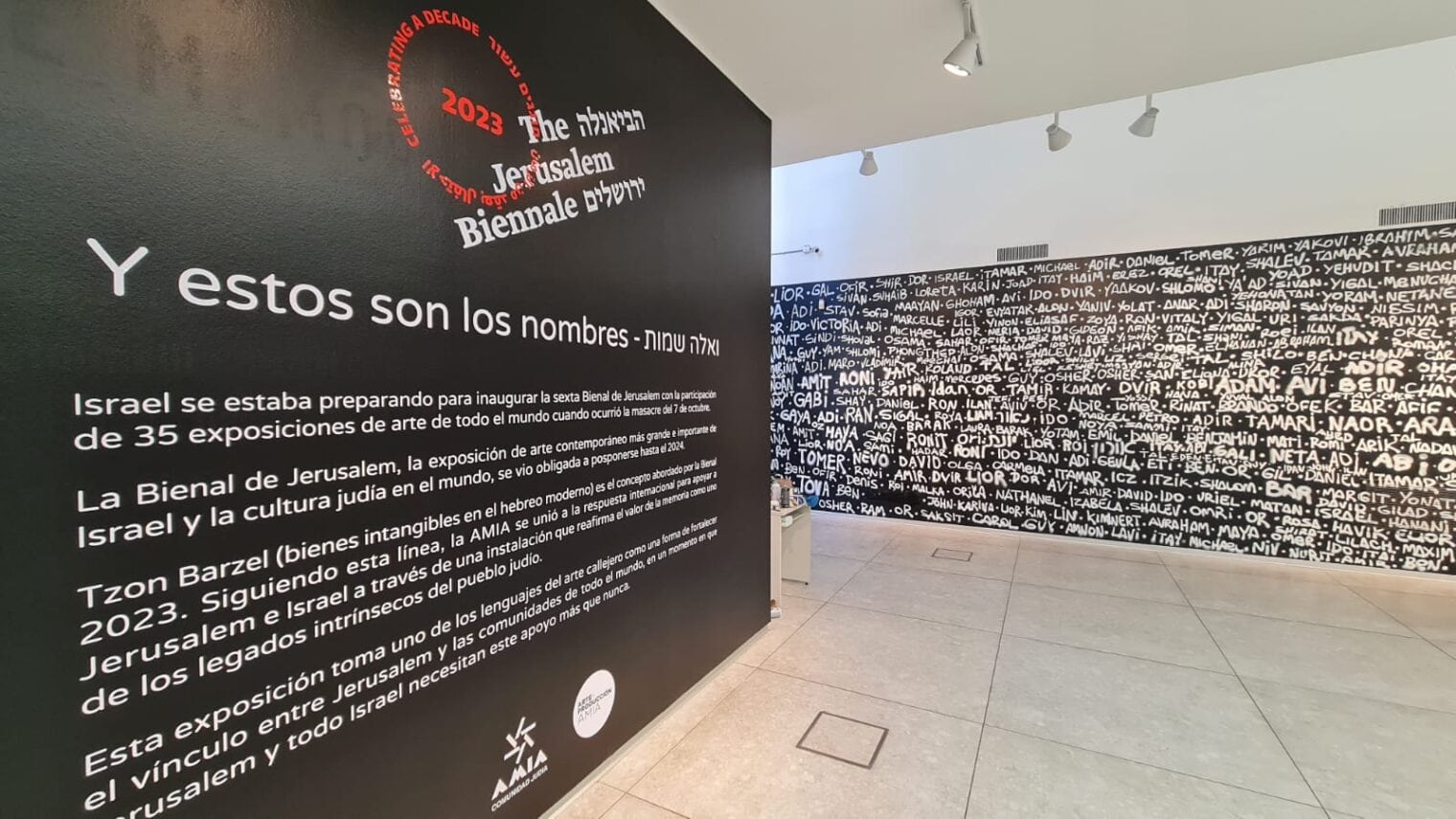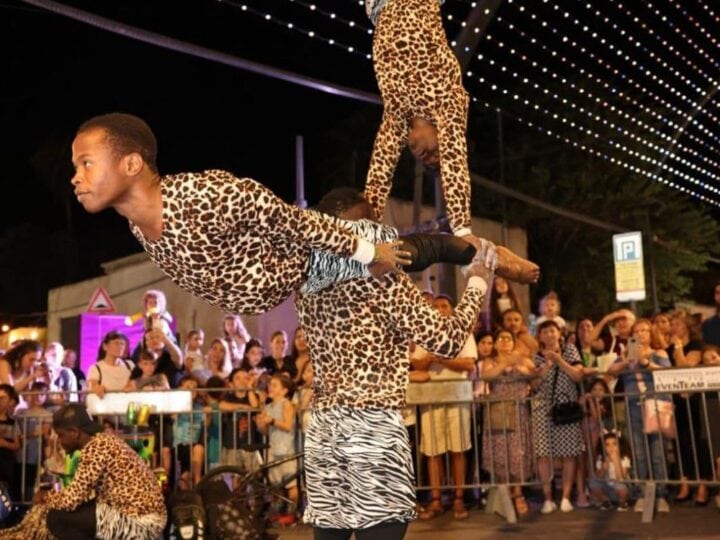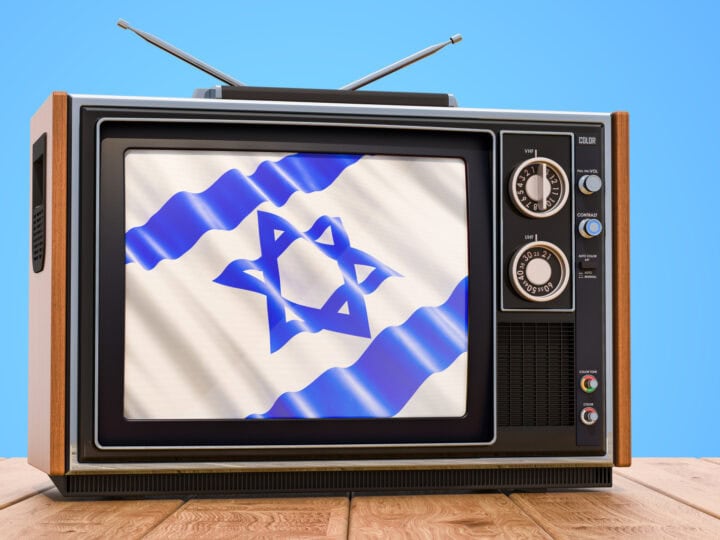The sixth Jerusalem Biennale was all but ready to open in the capital at the start of November, showcasing 200 artists via 35 exhibitions in more than 20 venues across Jerusalem.
The contemporary art event is staged every two years to showcase the works of Israeli and international Jewish artists.
The Jerusalem Biennale provides professional artists and curators with a prestigious platform to showcase artworks that relate in some way to Jewish thought, spirit, experience or tradition, opening a fresh conversation on Judaism.
Exactly a month before it was set to open, Hamas terrorists launched a brutal attack on Israeli civilians, killing over 1,200 people and kidnapping hundreds more.
Unprecedented show of solidarity
“After a lot of thought, discussions and upset stomachs, we decided to postpone the Biennale until spring 2024,” Jerusalem Biennale founder and creative director Rami Ozeri tells ISRAEL21c.
“Then, someone suggested that if we can’t get together in Jerusalem to celebrate art, it’s worth doing something with our partners overseas in the meantime to sweeten the bitter pill.”
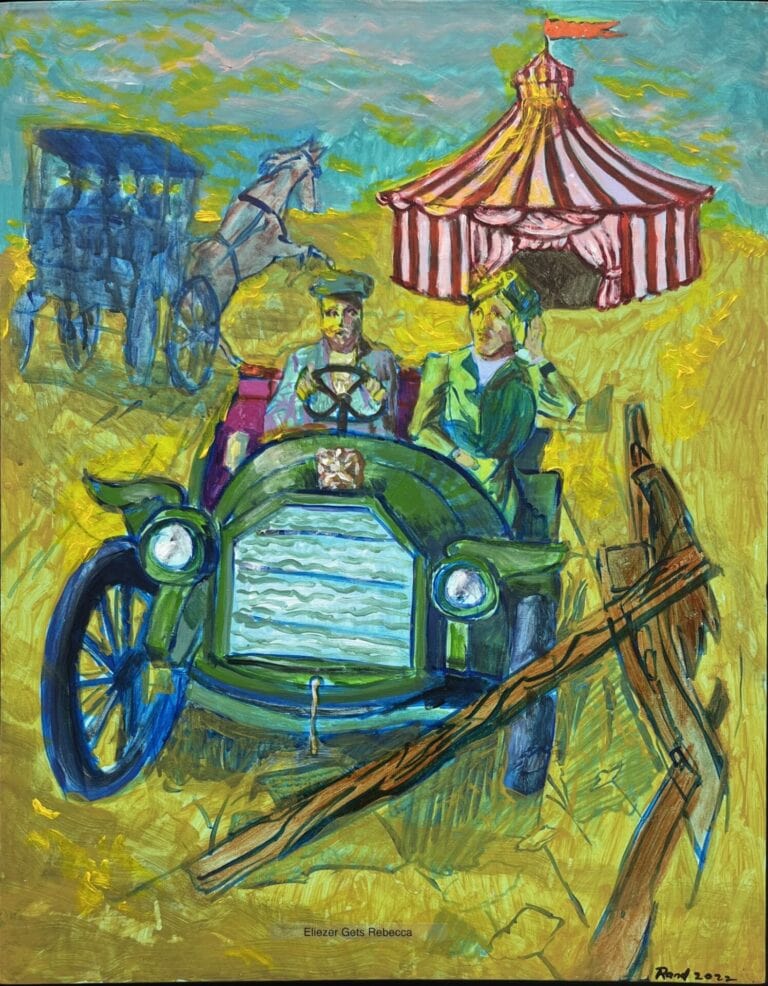
In an unprecedented show of solidarity, many artists and curators embraced the idea to showcase some of the scheduled biennale exhibitions internationally in their own home cities until the event could once again be staged in Jerusalem.
Special exhibitions already took place at the Heller Museum in Hebrew Union College in New York, and AMIA Art Space in Buenos Aires — the spot of the 1994 Hezbollah bombing.
Buenos Aires opened the first overseas exhibition on November 7 to commemorate one month since the Hamas attacks. The exhibition featured an installation created specifically to commemorate the victims.
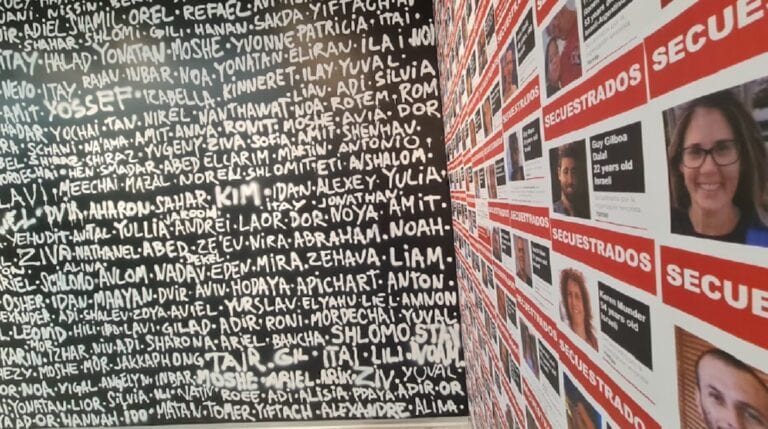
In December, similar exhibitions will be staged at the Marlene Meyerson JCC in Manhattan and the Jewish Museum of Casale Monferrato in Italy. More exhibitions are scheduled to open in other locations in the upcoming weeks.
“We’re in talks with Budapest, Dallas and London, and maybe we’ll have more exhibitions in New York,” says Ozeri.
The organizers are still planning to host the event in Jerusalem in March 2024. “I hope things in our country will be better by then,” Ozeri says.
“Some exhibitions that were set to be in the background will be highlighted more because they suit the current times better. We will add new exhibitions, which are being created as we speak, to reflect the situation.”
Israeli art will take a hit
Ozeri says that times of security tensions in Israel often reflect negatively on Israeli artists, and this war is no exception.
“Modern art is a sphere that was always difficult [for Israeli artists] to navigate due to the politics associated with this field. Now, it will be even more difficult, regardless of the contents of the artists’ works or their personal politics,” he says.
“There are many forces working against us. We will take a hit.”
Ozeri notes that “anyone who understands the complexity of the situation must understand that today, more than ever, the Israeli artists need your support. Visit exhibitions and share the art on social media.”
He says that with Israel struggling to explain its side of the conflict to the world, artists can be excellent spokespeople because they can convey messages in a different way.
“We need to support the artists, so they would support us in our fight for legitimacy, solidarity and truth,” Ozeri adds.
“We will continue to nurture the ties of art and culture between Jerusalem and the world today more than ever. This heart will always keep beating.”




